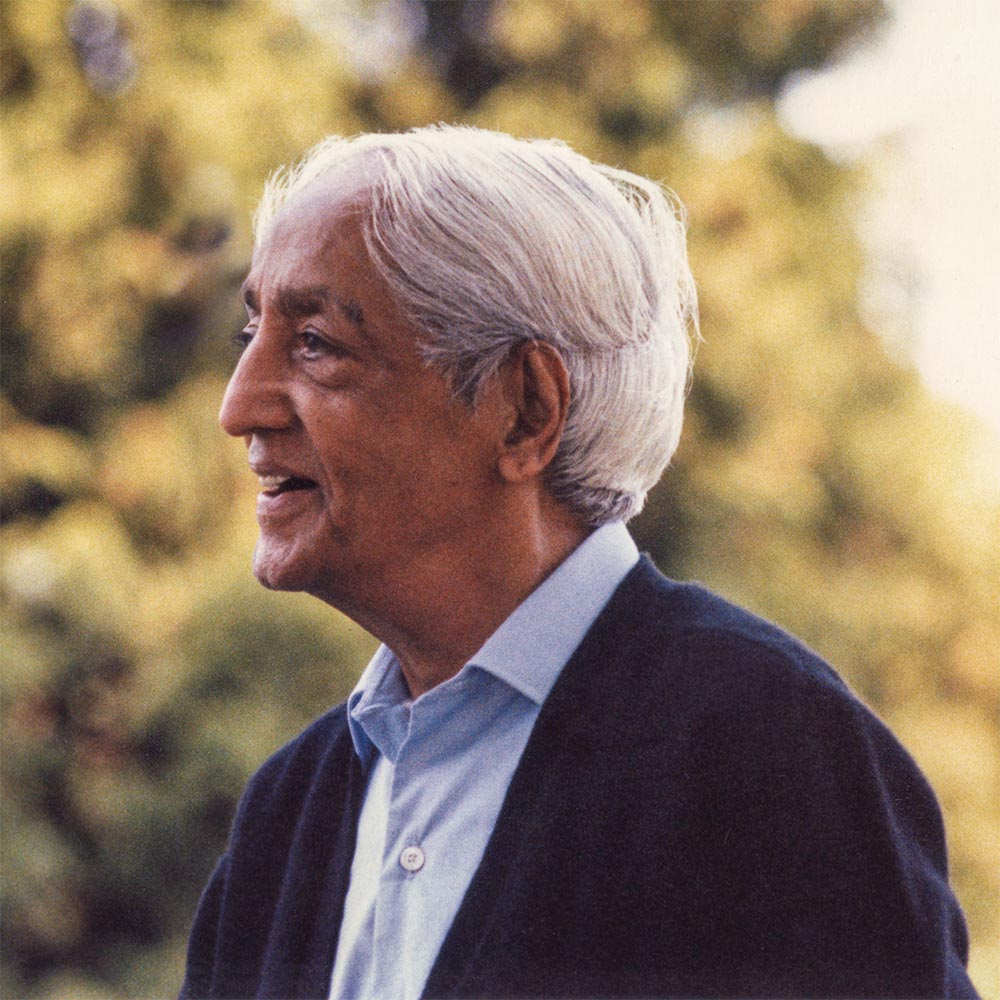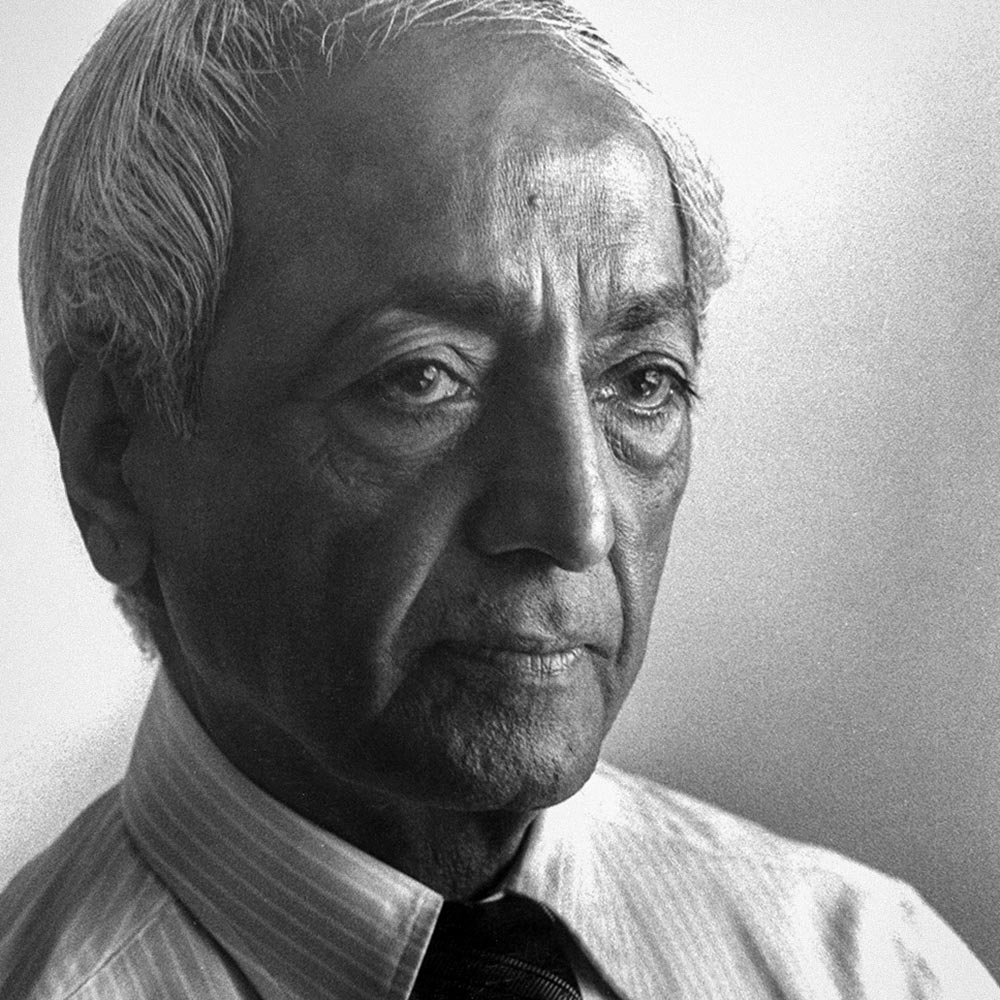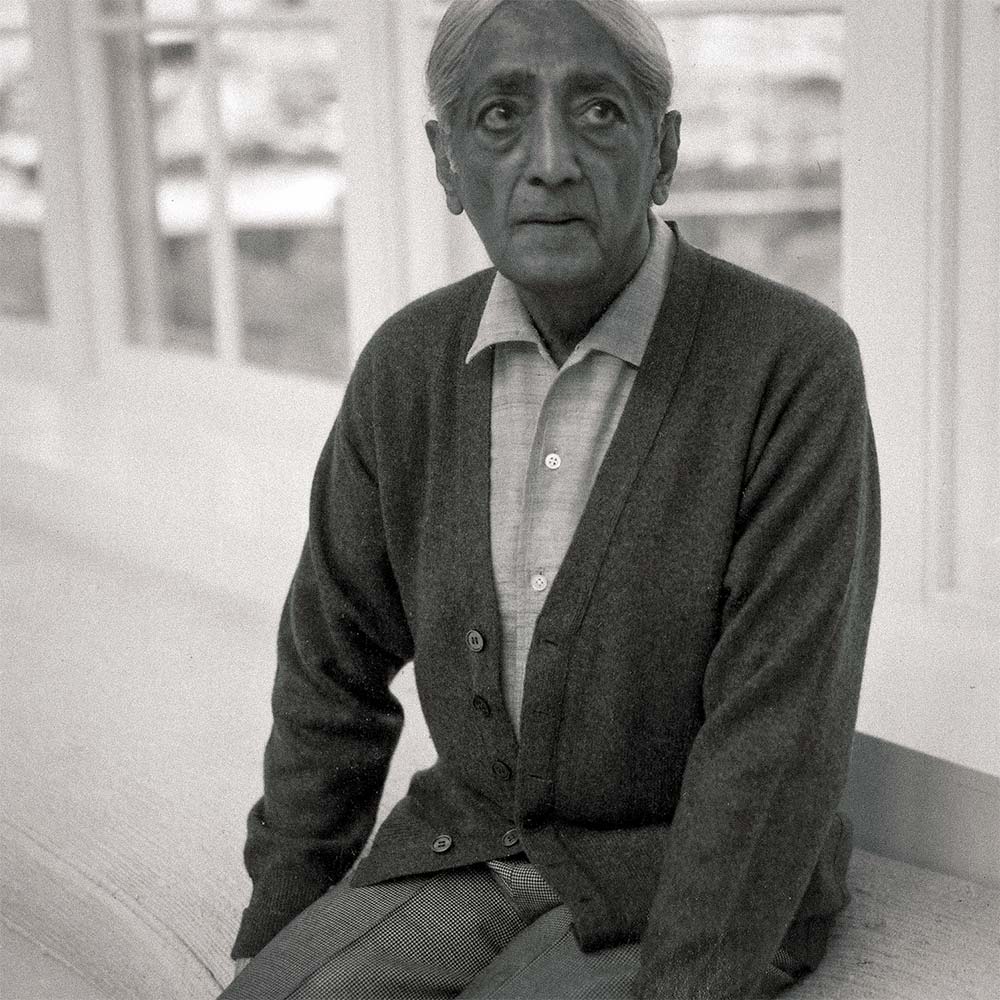The mind is the centre of envy. The mind itself is envious. The very structure of the mind is built on acquisition and envy.
Krishnamurti, Life Ahead
Read More
As long as the mind thinks in terms of ‘more’, there must be envy; as long as there is comparison, there must be envy; as long as there is a goal to be achieved, there must be envy; as long as the additive process of self-improvement exists, there must be envy.
Krishnamurti, Commentaries on Living 3
Read More
You cannot improve envy; envy has to cease.
Krishnamurti, Commentaries on Living 3
Read More
The action that takes place when you are different from jealousy is the non-ending of jealousy.
Krishnamurti, The Awakening of Intelligence
Read More
Instead of struggling with envy and trying to suppress it, observe your envy without naming it.
Krishnamurti, To Be Human
Read More
Envy and jealousy are indications of fear.
Krishnamurti, The Awakening of Intelligence
Read More
The perception, the total observation of jealousy and the freedom from it, is not a matter of time but of giving complete attention.
Krishnamurti, The Flight of the Eagle
Read More
If I know I am jealous and watch it, and let it be, then out of that comes something extraordinary.
Krishnamurti, Reflections on the Self
Read More
If you once realised that envy and ambition are poisonous, vicious, cruel, as deadly as the sting of a cobra, you would awaken to them. But the mind does not want to look at these things too closely; in this area it has vested interests.
Krishnamurti, Think on These Things
Read More
I feel envious of you because you have a better coat, nicer clothes or more titles. Therefore I say, ‘I must not have envious feelings, I must be brotherly.’ The ideal has become my authority, and according to that ideal I try to live.
Krishnamurti, Life Ahead
Read More
Most of us are, in some form or other, envious. Envy arises through comparison, through measurement, through wanting to be something different from what one is.
Krishnamurti, The Flight of the Eagle
Read More
Destruction of envy is total and complete; it implies the freedom from suppression and control, and without any motive whatsoever. This total destruction is possible; it lies in seeing the total structure of envy.
Read More
If you run away with my wife and I get jealous, that jealousy is called righteous because she is ‘my property’. This is considered morally justified. But to kill for my country is also justified.
Krishnamurti, Reflections on the Self
Read More
Ownership breeds hatred. We really hate what we possess, which is shown in jealousy. Where there is possession, there can never be love.
Krishnamurti, What Are You Doing With Your Life?
Read More
Why jealousy and not love?
Read More
These quotes only touch on the many subjects Krishnamurti inquired into during his lifetime. His timeless and universal teachings can be explored using the Index of Topics where you will find texts, audio and video related on many themes. Another option is to browse our selection of curated articles or more short quotes. Krishnamurti’s reply when asked what lies at the heart of his teachings can be found here. Many Krishnamurti books are available, a selection of which can be explored here. To find out more about Krishnamurti’s life, please see our introduction and the biography. We also host a weekly podcast, and offer free downloads. Please visit our YouTube channel for hundreds of specially selected shorter clips. Below, you can learn more about Krishnamurti and our charity which he founded in 1968.

Who Was Krishnamurti?
J. Krishnamurti (1895-1986) is widely regarded as one of the greatest thinkers and religious teachers of all time. He spoke throughout the world to large audiences and to individuals, including writers, scientists, philosophers and educators, about the need for a radical change in mankind. Referring to himself, Krishnamurti said:
He is acting as a mirror for you to look into. That mirror is not an authority. It has no authority, it’s just a mirror. And when you see it clearly, understand what you see in that mirror, then throw it away, break it up.
Krishnamurti was concerned with all humanity and held no nationality or belief and belonged to no particular group or culture. In the latter part of his life, along with continuing to give public talks, he travelled mainly between the schools he had founded in India, Britain and the United States, which educate for the total understanding of man and the art of living. He stressed that only this profound understanding can create a new generation that will live in peace.
Krishnamurti reminded his listeners again and again that we are all human beings first and not Hindus, Muslims or Christians, that we are like the rest of humanity and are not different from one another. He asked that we tread lightly on this earth without destroying ourselves or the environment. He communicated to his listeners a deep sense of respect for nature. His teachings transcend man-made belief systems, nationalistic sentiment and sectarianism. At the same time, they give new meaning and direction to mankind’s search for truth. His teaching is timeless, universal and increasingly relevant to the modern age.
I am nobody. It is as simple as that. I am nobody. But what is important is who you are, what you are.
Krishnamurti
Krishnamurti spoke not as a guru but as a friend. His talks and discussions are based not on tradition-based knowledge but on his own insights into the human mind and his vision of the sacred, so he always communicated a sense of freshness and directness, although the essence of his message remained unchanged over the years. When Krishnamurti addressed large audiences, people felt that he was talking to each of them personally, addressing their own particular problem. In his private interviews, he was a compassionate teacher, listening attentively to those who came to him in sorrow, and encouraging them to heal themselves through their own understanding. Religious scholars found that his words threw new light on traditional concepts. Krishnamurti took on the challenge of modern scientists and psychologists and went with them step by step, discussing their theories and sometimes enabling them to discern the limitations of their theories.
Krishnamurti left a large body of literature in the form of public talks, writings, discussions with teachers and students, scientists, psychologists and religious figures, conversations with individuals, television and radio interviews, and letters. Many of these have been published as books, in over 60 languages, along with hundreds of audio and video recordings.

The Krishnamurti Foundation
Established in 1968 as a registered charity, and located at The Krishnamurti Centre, Krishnamurti Foundation Trust exists to preserve and make available Krishnamurti’s teachings.
The Foundation serves a global audience by providing worldwide free access to Krishnamurti videos, audio and texts to those who may be interested in pursuing an understanding of Krishnamurti’s work in their own lives.
In describing his intentions for the Foundations, Krishnamurti said:
The Foundations will see to it that these teachings are kept whole, are not distorted, are not made corrupt.

